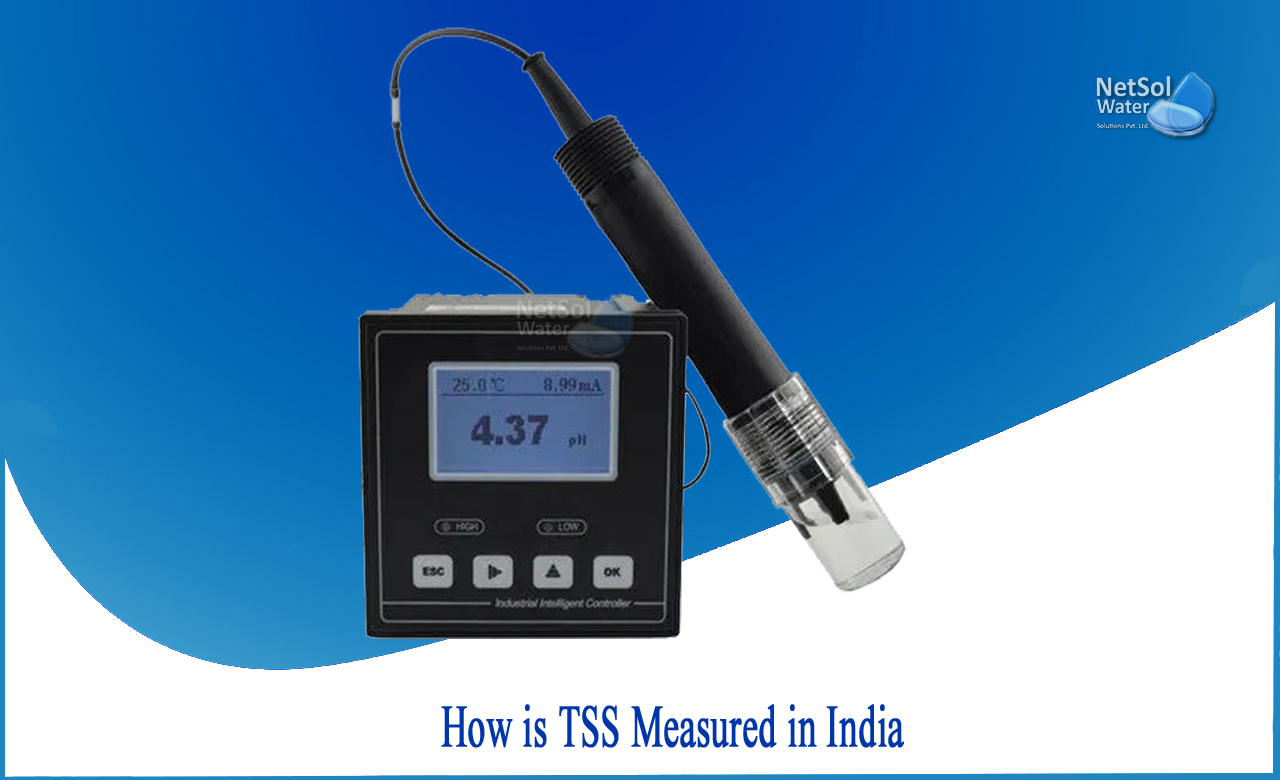What is TSS?
Total suspended solids (TSS) are the dry weight of non-dissolved suspended particles in a sample of water/wastewater that may be caught by a filter and quantified using a filtering device.
It is a water quality metric used to evaluate the quality of any sort of water or water body, such as ocean water or wastewater following treatment at a wastewater treatment facility. TSS is the most often used metric for determining the quantity of organic and inorganic particles in wastewater effluent.
TSS Values in wastewater
TSS in raw wastewater generally ranges from 155 to 330 mg/L, with a median value of 250 mg/L. A normal TSS value after primary treatment in a septic tank is less than 65 mg/L. TSS should be less than 25 mg/L after secondary therapy in an advanced treatment system.
TSS and Turbidity Units are used in India to measure TSS. Total suspended solids are given in milligrams of solids per litre of water (mg/L) as a mass measurement. Suspended silt is also measured in milligrams per litre. The most accurate way to determine TSS is to filter and weigh a water sample.
TSS measurement techniques and Standard Procedures in India
TSS is tested using a solids analysis, although it may also be calculated using a turbidity test.
Turbidity is a measure of the physical purity of water and an indicator of the presence of suspended debris in wastewater. An Imhoff cone can be used to perform a "quick and dirty" TSS test.
What are the standard procedures for measuring TSS in India?
TSS is measured using Standard ProceduresIS: 3025-Part 17 'Methods of sampling and testing (physical and chemical) forwater and wastewater (TSS)’.
Measurement of TSS
TSS of a water or wastewater sample is determined by passing a carefully measured volume of water (typically one litre; but less if particulate density is high, or as much as two or three litres for very clean water) through a pre-weighed filter of a specified pore size, then weighing the filter again after the drying process removes all water on the filter.
The rise in weight is a dry weight measurement of the particles in the water sample represented in units obtained or computed from the volume of water filtered (usually mg/L).
Conclusion
Although turbidity and TSS both claim to assess roughly the same water quality attribute, the latter is more useful since it offers an actual weight of the particulate material present in the sample. To build a site-specific connection in water quality monitoring, a series of more labour-intensive TSS measurements will be linked with relatively rapid and straightforward turbidity observations. Once established, the correlation may be utilized to estimate TSS from more regularly performed turbidity measurements, saving time and effort.
What do we offer?
The World Health Organization specifies that the turbidity of drinking water should not exceed 5 NTU, and ideally should be less than 1 NTU.
If we don’t know about the TSS Values, we can’t design proper drinking water treatment plants, so, if you want to know more about how to measure TSS or why its treatment is required, then you are at the right place!
Netsol Water is Greater Noida-based leading water & wastewater treatment plant manufacturer. We are industry's most demanding company based on client review and work quality. We are known as best commercial RO plant manufacturers, industrial RO plant manufacturer, sewage treatment plant manufacturer, Water Softener Plant Manufacturers and effluent treatment plant manufacturers. Apart from this 24x7 customer support is our USP. Call on +91-9650608473, or write us at enquiry@netsolwater.com for any support, inquiry or product-purchase related query.



